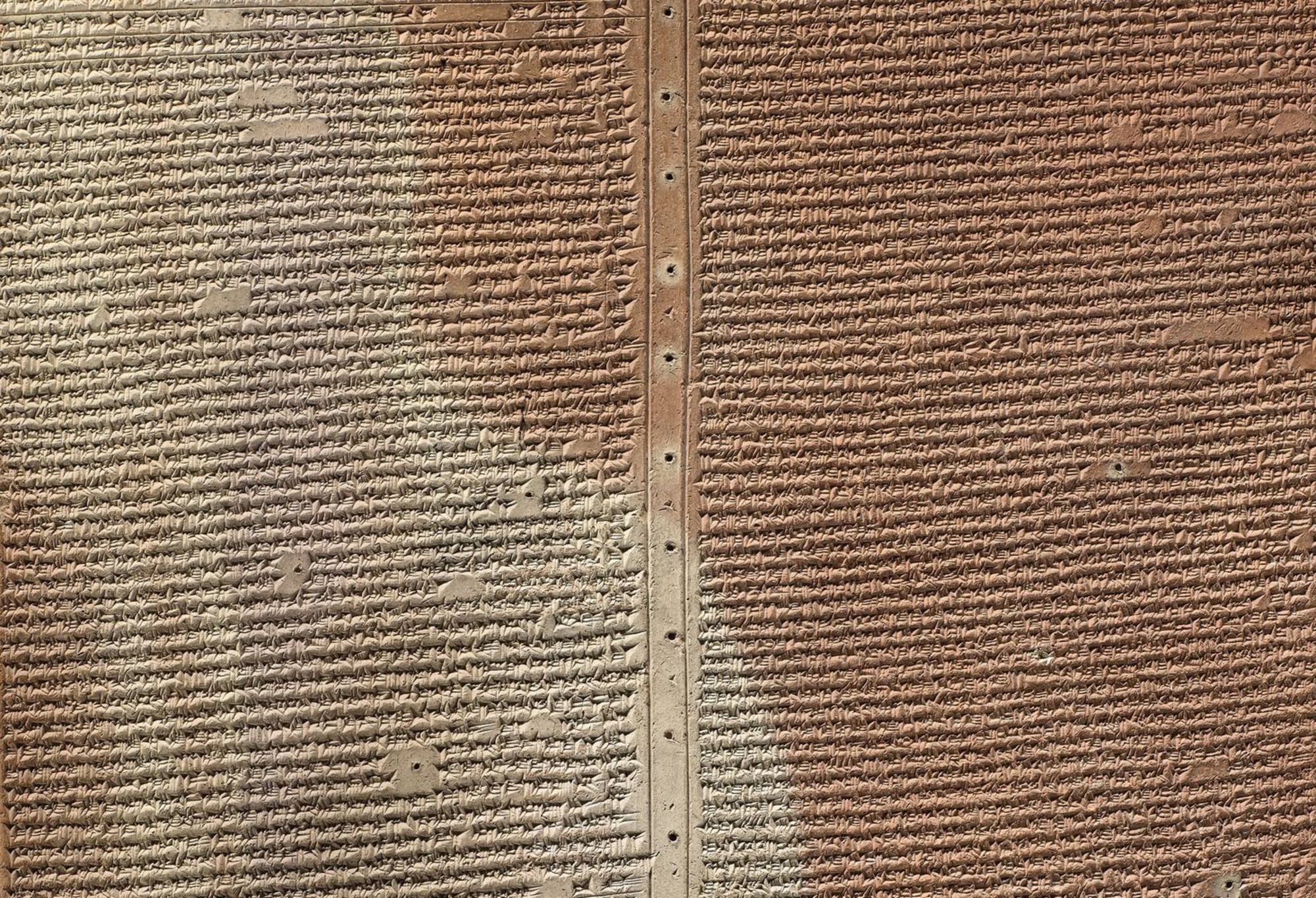
- Home
- The Eighth Campaign of Sargon II
- What it tells us
The Eighth Campaign is a military report, an account of the exploits of the armies of the god Ashur, and a work of propaganda with political ends.
The campaign of 714 BCE against the Urartian Empire
Sargon II of Assyria (722-705) conducted a military campaign over a wide area against the Urartian Empire during the 8th year of his reign (714). From Assyria, he crossed the northern chain of the Zagros mountains with his army and reached the shores of Lake Urmia. He defeated his opponent, the king of Urartu, at the battle of Mount Wa'ush, and then devastated his provinces and royal lands. Sargon II also attacked the city of Musasir, a major religious centre, which he plundered and sacked. Sargon II finally returned to Assyria after winning on all fronts.
The god Ashur
Seven lines introduce us to the god Ashur, to whom the letter is addressed, and his prerogatives. We learn that he is the supreme god of Assyria and the city of Ashur, from which he annihilates evil; as god of war, he drives out the enemy and catches him in his net. Certain defeat or failure awaits those who attempt to mount a military campaign or realise great feats without him.
"(l.116) to Ashur, ruler of all the gods, lord of the lands, who created everything, king of all the great gods, who controls the universe,
(l.117) the almighty lord of the city of Ashur, who in unleashing his terrible wrath smashes the princes of the world and crushes the .........,
(l.118) the mighty hero, from whose trap the wicked cannot escape, and by whom he who does not respect his oath is wiped out;
(l.119) he who treats his command with irreverence, who relies on his own strength alone, disregards his divine majesty, and talks out of bravado,
(l.120) he shall attack him furiously in the heat of battle, break his weapons and destroy the order of his army,
(l.121) but he who respects the verdict of the gods, who trusts in the fair judgment of Shamash, and who reveres the divine power of Ashur, the Enlil of the gods,
(l.122) Ashur commands his fierce axe-bearers to walk by his side and assures him triumph over his enemies and adversaries"
A letter from the king of Assyria, Sargon II
The author is Sargon II, who introduces himself and reminds us that he is the sovereign of Assyria, the legitimate king, and defender of the divine word:
"(l.112) I, Sargon, king of the four regions, shepherd of the land of Ashur, guarantor of the oaths of Enlil and Marduk, mindful of the judgment pronounced by Shamash,
(l.113) offspring of the city of Ashur, city of wisdom and understanding, I who pay respectful attention to the word of the great gods and do not seek to question their purpose in advance,
(l.114) the legitimate king, who says what is good and abhors treacherous speech, whose mouth never utters even the smallest order to do evil or oppress (anyone),
(l.115) the wisest prince in the whole world, who was conceived in wisdom and reflection, who with his hand ensures respect towards gods and goddesses"
Propaganda narrative
The Eighth Campaign is a propaganda narrative that repeatedly stresses the superiority of Assyria through a series of literary and historical references. The Eighth Campaign was also written in a refined language steeped in literary references, some very old. The use of standard Babylonian enhances the literary and historical value of the work and confers immense prestige on the sovereign. Besides passages taken from literature, the letter draws its themes from mythological and historical accounts. Some passages are borrowed from earlier works with repeated references to Sargon of Akkad (circa 2300 BCE) and the Urartian campaign of Salmanazar III (858-824 BCE). Lastly, the Eighth Campaign also features humorous passages and multiple word games. These make the sentences more lively when the letter is recited, by playing on terms with a similar sound, or by using homonyms or even rarer grammatical expressions.

